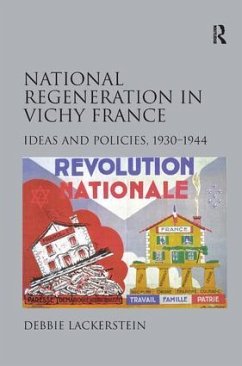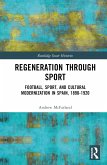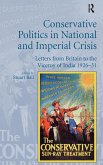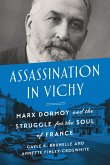The creators of the Vichy regime did not intend merely to shield France from the worst effects of military defeat and occupation; rather the leaders of Vichy were inspired by a will to regenerate France, to establish an authoritarian new order that would repair the degenerative effects of parliamentary democracy and liberal society. Their plan to effect this change took the form of a far-reaching programme they called the National Revolution. This is the first study of the National Revolution as the expression of Vichy's ideology and aims. It reveals the variety and complexity of both right wing and other strands of French thought in the context of the turbulent years of the 1930s - when Vichy's history really begins - and under the Occupation, when internal rivalries and divisions, as well as the pressures of war, doomed Vichy's programme of national regeneration. The book is structured around a consideration of the rhetoric of right-wing ideology and such key catchwords as 'decadence', 'action', 'order', 'realism' and 'new man', and shows how these phrases only served to mask the political and ideological incoherence of the Vichy government.
Bitte wählen Sie Ihr Anliegen aus.
Rechnungen
Retourenschein anfordern
Bestellstatus
Storno









